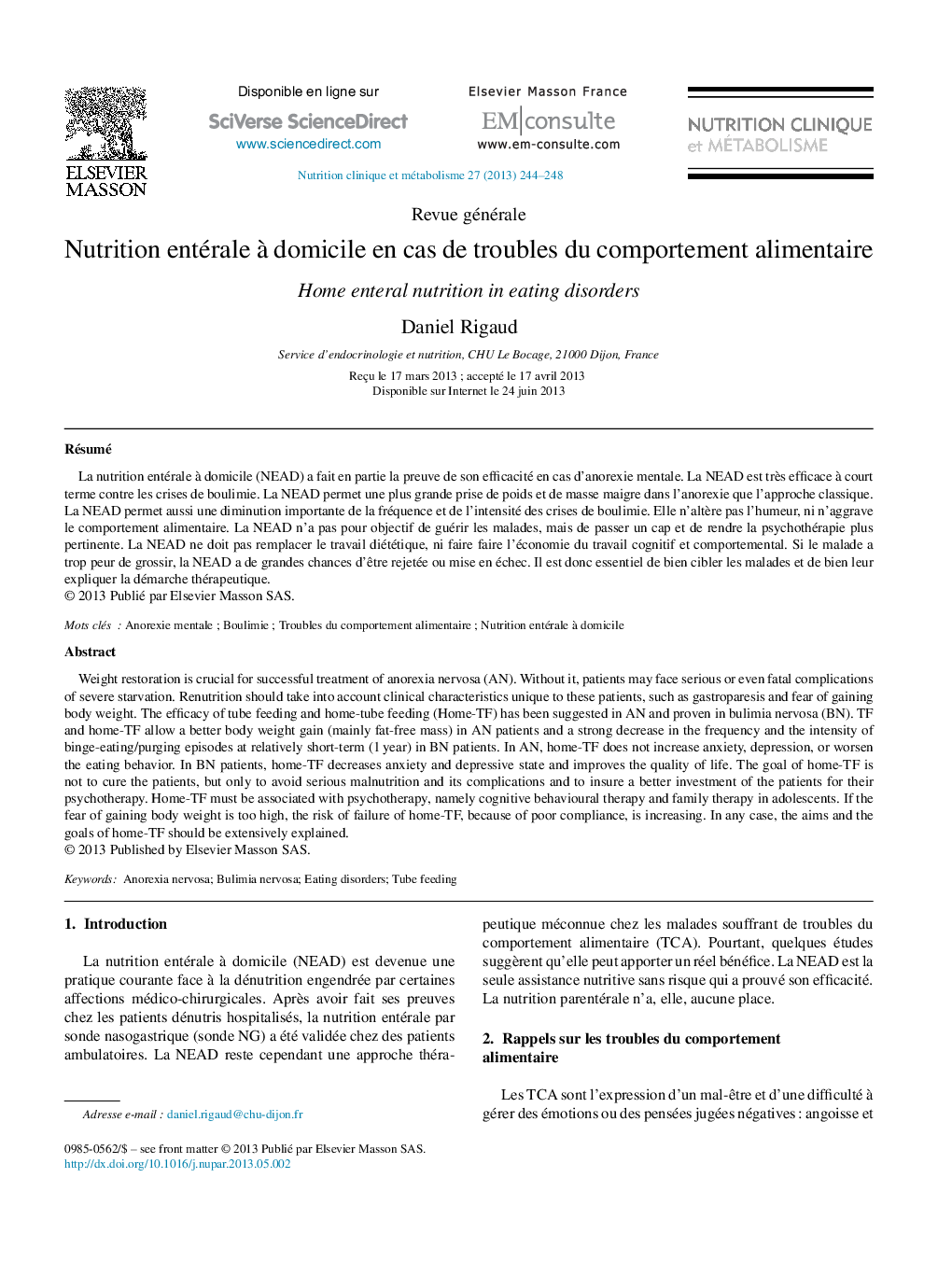| کد مقاله | کد نشریه | سال انتشار | مقاله انگلیسی | نسخه تمام متن |
|---|---|---|---|---|
| 2693948 | 1143588 | 2013 | 5 صفحه PDF | دانلود رایگان |

RésuméLa nutrition entérale à domicile (NEAD) a fait en partie la preuve de son efficacité en cas d’anorexie mentale. La NEAD est très efficace à court terme contre les crises de boulimie. La NEAD permet une plus grande prise de poids et de masse maigre dans l’anorexie que l’approche classique. La NEAD permet aussi une diminution importante de la fréquence et de l’intensité des crises de boulimie. Elle n’altère pas l’humeur, ni n’aggrave le comportement alimentaire. La NEAD n’a pas pour objectif de guérir les malades, mais de passer un cap et de rendre la psychothérapie plus pertinente. La NEAD ne doit pas remplacer le travail diététique, ni faire faire l’économie du travail cognitif et comportemental. Si le malade a trop peur de grossir, la NEAD a de grandes chances d’être rejetée ou mise en échec. Il est donc essentiel de bien cibler les malades et de bien leur expliquer la démarche thérapeutique.
Weight restoration is crucial for successful treatment of anorexia nervosa (AN). Without it, patients may face serious or even fatal complications of severe starvation. Renutrition should take into account clinical characteristics unique to these patients, such as gastroparesis and fear of gaining body weight. The efficacy of tube feeding and home-tube feeding (Home-TF) has been suggested in AN and proven in bulimia nervosa (BN). TF and home-TF allow a better body weight gain (mainly fat-free mass) in AN patients and a strong decrease in the frequency and the intensity of binge-eating/purging episodes at relatively short-term (1 year) in BN patients. In AN, home-TF does not increase anxiety, depression, or worsen the eating behavior. In BN patients, home-TF decreases anxiety and depressive state and improves the quality of life. The goal of home-TF is not to cure the patients, but only to avoid serious malnutrition and its complications and to insure a better investment of the patients for their psychotherapy. Home-TF must be associated with psychotherapy, namely cognitive behavioural therapy and family therapy in adolescents. If the fear of gaining body weight is too high, the risk of failure of home-TF, because of poor compliance, is increasing. In any case, the aims and the goals of home-TF should be extensively explained.
Journal: Nutrition Clinique et Métabolisme - Volume 27, Issue 4, December 2013, Pages 244–248